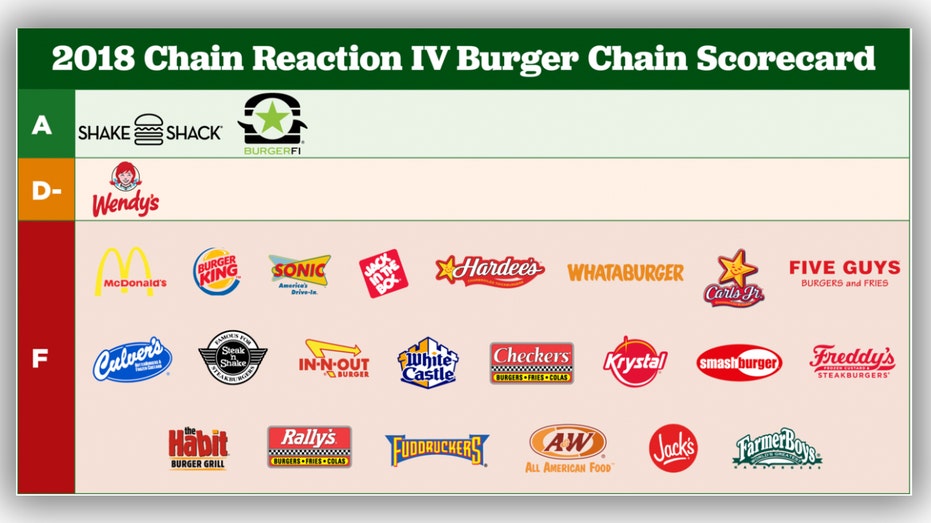McDonald's, Burger King get F on antibiotics report card
For years, big fast-food giants such McDonald’s and Burger King have been touting their plans to curb the use of antibiotics in their meat supply.
But according to a new report, a majority of them have been failing miserably at implementing those policies, especially when it comes to beef.
Both McDonald’s and Burger King along with 21 other top burger chains either failed or got a D-minus on a new antibiotic report card report released by the nonprofit environmental advocacy group Natural Resource Defense Council, which collaborated with other top watchdog groups, including Consumer Reports and the Center for Food Safety to conduct the report.
Of the 25 top U.S. burger chains graded, only two chains — Shake Shack and BurgerFi — came out as winners, both receiving an A. Wendy’s received a D-minus while the other 20 chains all failed.
“Many companies have committed to ending or restricting the use of medically important drugs in chicken supply chains. Unfortunately, when it comes to beef and pork, we’ve seen little in the way of meaningful change,” Lena Brook, lead researcher of the report and interim director of the food and agriculture program at the nonprofit Natural Resources Defense Council, one of the organizations involved in the research, said.
The purpose of the report, added Jean Halloran, director of food policy initiatives for the advocacy division of Consumer Reports, is to shine a spotlight on antibiotics policies and practices surrounding the beef industry, which is depleting the country’s supply and causing humans to become resistant to it over time, which may lead to serious health risks.

“There is a lot of work to be done,” she said.
“After all the attention that has been drawn to the growing antibiotic crisis, we were disappointed to see that most restaurant chains had not taken any steps to reduce the use of antibiotics used to produce the beef they serve. That is especially worrisome given that the beef sector is the biggest buyer of antibiotics in the U.S., responsible for 43 percent of the sales of medically-important antibiotics for livestock.”
But major progress has been made over the years in the chicken category.
Last June, the parent of company of Burger King and Tim Hortons announced its plan to cut the use of antibiotics in its chicken supply, following similar commitments from McDonald’s, Wendy’s, KFC and Chick-fil-A from years earlier.
But just like the others, no mention of its beef supply.
Then a few months later, McDonald’s upped its 2016 announcement and said it is curbing the use of “high value” human antibiotics in its global chicken supply in 2018, adding that it’s “working” on antibiotic plans for its other meats. But no formal plans have been announced.
A spokesperson for McDonald’s told FOX Business that preserving the effectiveness of antibiotics for future generations is “highly important” to McDonald’s.
“McDonald’s is currently finalizing a global antibiotics policy for beef, to begin roll out before the end of 2018,” the spokesperson added.
Burger King, however, did not immediately respond to FOX Business’ request for comment on the report.
“When top restaurant chains voluntarily commit to ending the routine use of antibiotics in their supply networks, they can ignite broader change in practices across the meat industry. Ending routine antibiotics use can help slow the spread of antibiotic-resistant bacteria and keep these critical medicines working to treat infections in humans and animals,” Brook said.




















